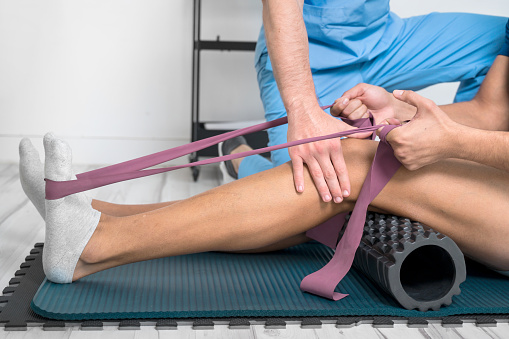What to Expect From a Physical Therapist

A physical therapist (also called a physiotherapist) helps people recover from an injury or illness by using exercise and other treatments. They are licensed health professionals who engage in specific graduate training. They can treat a variety of conditions, including muscle pain and injuries, arthritis, neurological disorders, chronic diseases and even strokes.
They also work with children, older adults and those with special needs. They use techniques such as massage, manual therapy and soft tissue manipulation to help their patients move better.
You can find Mobilize Physical Therapy Mountlake Terrace therapist near you in a hospital, outpatient clinic or other community setting, depending on your location and what type of treatment you need. You might need short-term care for an injury or as part of your rehab after surgery. Or you might need long-term treatment for a condition, such as arthritis or chronic back pain.
The best Mountlake Terrace Sports Medicine therapists know how to evaluate their patients’ movement patterns and tailor treatment plans based on their patient’s unique issues. They understand how different body systems integrate with movement and can diagnose problems that might go unrecognized in the average doctor’s office, says Joanne Tutt, a physical therapist at NYU Langone Medical Center in Brooklyn, New York.
In addition to having a bachelor’s degree and a license to practice, physical therapists have to pass national and state examinations. These include the National Physical Therapy Exam, which is administered by the American Physical Therapy Association, and a state exam.
These health professionals must undergo years of education and training to become licensed. They typically earn a bachelor’s degree in a related field before completing a three-year Doctor of Physical Therapy (DPT) program. They can also complete an internship or postgraduate studies, if they want to specialize in a particular area of physical therapy, such as sports or orthopedics.
Whether they are a PT or a physiotherapist, you can expect them to have an intense commitment to their profession and the health of their patients. They’re able to connect and bond with their patients in ways that others can’t.
When you first visit a physical therapist, it’s important to let them know how severe your problem is and what you hope to achieve. You should also provide them with any relevant information about your symptoms and how they affect your day-to-day life.
Many physical therapists work in small teams. They might treat one or two other patients at a time. That helps keep their attention on you and ensures that they’re not missing anything from the session, explains John Reddon, a physical therapist at Teton Therapy in Riverton, Wyoming.
Your physical therapist will likely spend the first part of your session evaluating you and getting to know you better. They will ask questions about your symptoms, how they impact your daily life and any other concerns you have.
This is an important step, as it gives your therapist the opportunity to get to know you and to develop a better understanding of your problem before starting to treat you, LobertFrison suggests. Then, your therapist will discuss the treatment plan with you, including what goals you have for your therapy and how often you’ll work with them. Be sure to check out this website at https://www.youtube.com/watch?v=BJbkZ5RBIM8 for more info about PT.
